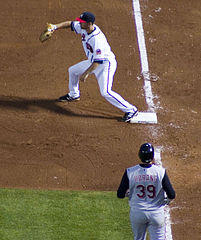For those of you who want to attend a major networking event for screenwriters, but you don't have the money or time to spend a week in L.A., I highly recommend spending an October weekend at the Austin Film Festival.
I just returned from my first AFF and found the experience both extremely exhausting and highly rewarding.
Here are some DO-s and DON'Ts I learned at AFF:
DO talk to everyone you can. Some rookie writers only focus on wanting to talk to the “important” people (agents, managers, producers, big-name writers). If you're only focused on who you think could help your career, you could miss out on connecting with someone who can give you some valuable insights.For example, you could stand in line at a panel on animation and meet a Finalist in the Pilot Script category who coordinates post-production for Marvel.
DON'T miss out on the parties. Most people who attend business conferences know that the real business doesn't get done on the conference floor, but at the after-party. While writers tend to favor solitude and shun social interactions, these parties tend to deliver some of the best networking opportunities.
For example, don't get so hungry, exhausted, or dehydrated from attending so many panels and discussions that you miss out on the chance to make a vital connection.
DO hang out at the Driskill Hotel bar. While the conference rooms and ballroom host the major panels that make up the conference, the real connections get made at the bar. Even if you don't drink, just get some water or a soft drink, say hello to other writers, and share horror stories about your industry experiences.
For example, you could be watching a baseball game on the bar TV and swap baseball memories with a fan of the opposing team.
For example, you could learn that you have a “six degrees of Kevin Bacon” connection with a major writer or that you and a panelist share a love of a specific obscure film that only seven other people have seen.
DO explore Austin. The city is more than just Sixth Street, Longhorns football, or Matthew McConaughey. It's also not a “hick town” that doesn't measure up to the glitz and glamour of Hollywood. While you're there, take the time to check out some local attractions.
For example, while Sixth Street claims to be the “Capital of Live Music”, you can find the true birthplace of Austin's live music scene on South Congress at a little place called The Continental Club.
DON'T put too much pressure on yourself. Odds are, you're not going to land an agent, a manager, or a writing assignment from just a single conversation with an industry insider. Networking is about planting seeds. Not all of those seeds will grow into a fruitful relationship, so lighten up and enjoy the process.
For example, if you get the chance to talk an influential producer, an A-list writer, or a top-level manager, try to treat it more as a casual conversation and less as a high-stakes pitch meeting. Let them like you first, then give them a chance to like your writing.
Many rookie writers complain about the barriers to breaking in. They say, “It's not what you know, it's who you know.”
In an industry that requires so much collaboration and contains so many moving parts, this sentiment isn't an injustice, it's a necessity. This fact of life also shows why networking events such as AFF are so vital to screenwriters who lack access to the L.A. scene.
In my experience, who you know gets you in the door, but it's what you know that keeps you in the room.
=========
For writers who are looking to improve their chances in contests such as AFF, Final Draft, or Screencraft, Story Into Screenplay offers script analysis and one-on-one consultations.
For the month of October, Story Into Screenplay is offering a professional analysis of the first ten pages of any screenplay (TV pilot, short film or feature film) for only $10.
For more information about this offer, email storyintoscreenplayblog(at)gmail(dot)com with the subject “10 Pages for $10” or fill in the form on this page.









_(5883489176).jpg/220px-St._Louis_Cardinals_third_baseman_David_Freese_(23)_(5883489176).jpg)
.jpg/196px-Josh_Harrison_playing_second_base_in_2017_(34985853622).jpg)

.jpg/320px-Noah_Syndergaard_(20697486276).jpg)
